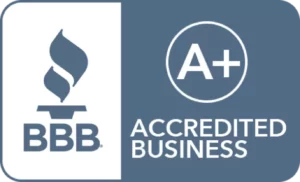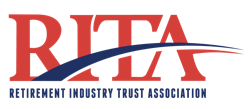UBTI Rules
The tax advantage of using a Self-Directed IRA to make investments is that gains and income are tax-free until distributed. In general, an exempt organization, such as a charity or retirement account, is not taxed on its income from an activity that is substantially related to the charitable, educational, or other purpose that is the basis for the organization’s exemption. Such income is exempt even if the activity is a trade or business. However, to prevent tax-exempt entities from competing unfairly with taxable entities, tax-exempt entities are subject to unrelated business taxable income (UBTI) when their income is derived from any trade or business that is unrelated to its tax-exempt status.
What is UBTI?
UBTI is defined as “gross income derived by any organization from any unrelated trade or business regularly carried on by it” reduced by deductions directly connected with the business. An exempt organization that is a limited partner, member of a LLC, or member of another non-corporate entity will have attributed to it the UBTI of the enterprise as if it were the direct recipient of its share of the entity’s income which would be UBTI had it carried on the business of the entity. UBTI also applies to unrelated debt-financed income (UDFI). “Debt-financed property” refers to borrowing money to purchase the real estate (i.e., a leveraged asset that is held to produce income). In such cases, only the income attributable to the financed portion of the property is taxed; gain on the profit from the sale of the leveraged assets is also UDFI (unless the debt is paid off more than 12 months before the property is sold).
There are some important exceptions from UBTI: those exclusions relate to the central importance of investment in real estate – dividends, interest, annuities, royalties, most rentals from real estate, and gains/losses from the sale of real estate. However, rental income generated from real estate that is “debt financed” loses the exclusion, and that portion of the income becomes subject to UBTI. Thus, if the IRA borrows money to finance the purchase of real estate, the portion of the rental income attributable to that debt will be taxable as UBTI.
For a Self-Directed IRA, any business regularly carried on or by a partnership or LLC of which it is a member is an unrelated business. For example, the operation of a shoe factory, the operation of a gas station, or the operation of a computer rental business by an LLC or partnership owned by the Self-Directed IRA LLC would likely be treated as an unrelated business and subject to UBTI.
In general, when it comes to using a Self-Directed IRA to make investments most investments are exempt from federal income tax. This is because an IRA is exempt from tax pursuant to Internal Revenue Code 408 and Section 512 of the Internal Revenue Codes exempt most forms of investment income generated by an IRA from taxation. Some examples of exempt type of income include: interest from loans, dividends, annuities, royalties, most rentals from real estate, and gains/losses from the sale of real estate.
The UBTI tax is essentially triggered in three main types of investments involving a Self-Directed IRA:
- Investing in an active trade or business via a pass-through entity, such as an LLC
- Using margin when buying stock
- Using a Non-recourse Loan to buy real estate
If the UBTI rules are triggered, the income generated from that activities will generally be subject to close to a 40% tax for 2024. Note – an IRA investing in an active trade or business using a C Corporation will not trigger the UBTI tax.
Get in Touch
It is highly advisable to consult with a tax attorney or tax professional, specifically one with a strong understanding of the IRS prohibited transaction rules, before using a Self-Directed IRA to invest in a private business. If you have any questions, please contact us @ 800.472.1043.











